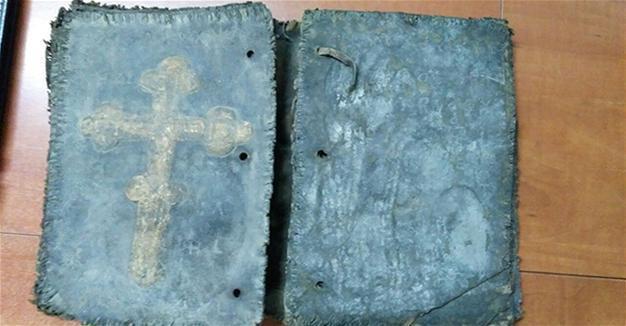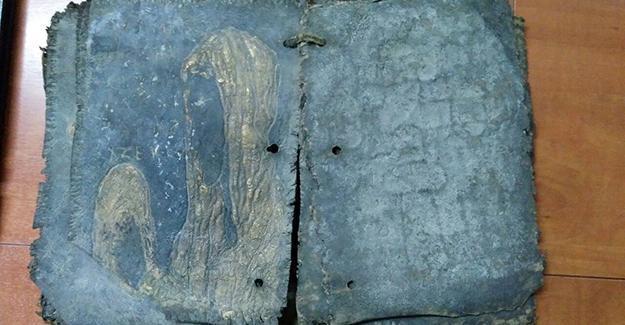Ancient book stolen in Syria seized in Turkey
BURSA

An ancient book stolen from a museum in Syria has been seized by gendarmerie forces in the northwestern province of Bursa.
The gazelle skin book, embroidered in gold, includes the figures of Mary, Jesus, animals, crosses and other writings.
Six people were detained after trying to sell the book, which has been handed over to the Bursa Museum.
The operation to seize the book and detain the suspects was launched last week when the gendarmerie received a tip that a 17-page book believed to have been stolen from a museum in Syria was being brought to Bursa to sell on the internet. A surveillance operation was launched against the suspects on the order of prosecutors, and the vehicle carrying the suspects was stopped at a gas station on the Istanbul-Bursa highway on March 7.
A Syrian man, along with four Turkish citizens, were detained on charges of smuggling artifacts.

The looting and destruction of artwork, artifacts and cultural property is a frequent occurrence in war, but the civil war in Syria, which began in 2011, and the rise of the Islamic State of Iraq and the Levant (ISIL) in Iraq has resulted in “the worst cultural heritage crisis since World War II,” according to a Government Accountability Office report on the “Protection of Iraqi and Syrian Antiquities.”
ISIL has “established an Antiquities Division with units dedicated to researching known archaeological sites, exploring new ones, and marketing antiquities,” GAO said, citing State Department information.
“Damages include the shelling of medieval cities and looting of museums containing items that date back more than six millennia,” GAO said. “By around July 2014, ISIL had destroyed hundreds of religious sites throughout the territory it controlled, including Christian statues of the Virgin Mary and the tomb of the Prophet Jonah in Mosul.”
In the Mosul region alone, “at least 66 archaeological sites have been destroyed, some of them transformed into parking lots. Muslim and Christian places of worship have suffered massive destruction, and thousands of manuscripts have disappeared,” Iraqi Deputy Culture Minister Qais Rashid told a UNESCO-organized conference in Paris last month.
 An ancient book stolen from a museum in Syria has been seized by gendarmerie forces in the northwestern province of Bursa.
An ancient book stolen from a museum in Syria has been seized by gendarmerie forces in the northwestern province of Bursa. 